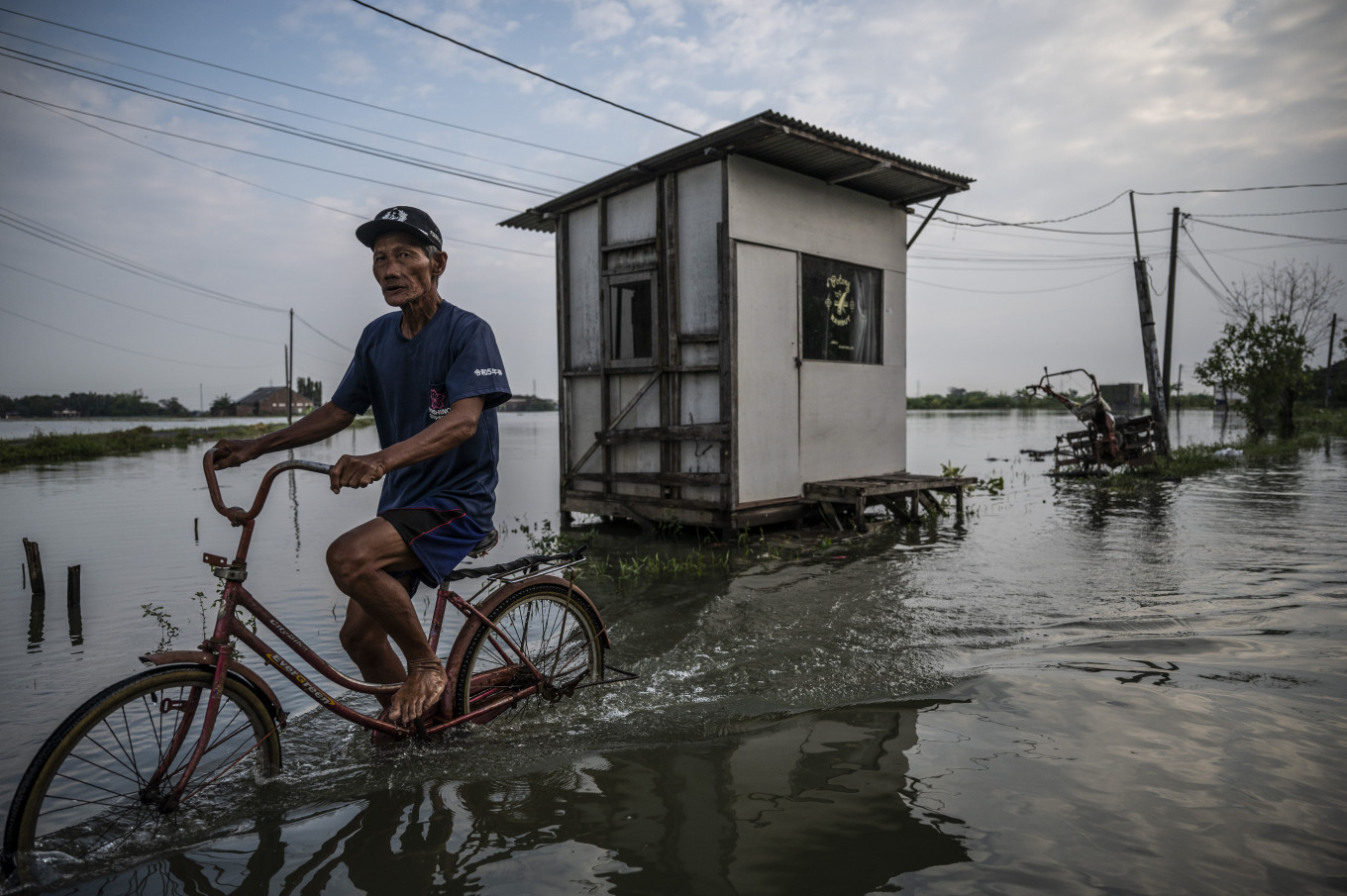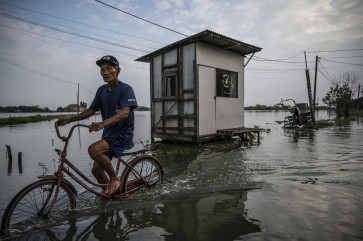Popular Reads
Top Results
Can't find what you're looking for?
View all search resultsPopular Reads
Top Results
Can't find what you're looking for?
View all search resultsUrgent call to turn the tide on coastal displacement
It is time for Indonesia to turn the table at the COP30 climate talks and take leadership in global discussion on displacement of coastal communities.
Change text size
Gift Premium Articles
to Anyone
T
he impacts of climate change have disproportionately affected the most vulnerable people around the world, especially coastal communities. According to the Intergovernmental Panel on Climate Change (IPCC) report in 2023, impact affecting them vary from climate hazards
to loss of livelihood, leading to climate-induced displacement and forced labor migration.
As the world’s largest archipelagic state, climate-induced displacement phenomena are not unknown to Indonesia. In northern coastal areas of Java, such as the Greater Jakarta province and Demak, Semarang and Pekalongan in Central Java, the displacement of populations has been linked to climate change.
Now is the time for Indonesia to turn the table at the COP30 climate talks in Belém, Brazil, to take leadership in the global discussion on the displacement of coastal communities.
Coastal communities’ dependence on marine resources for living, strong connection to the ocean, cultural bonds to the sea and their vulnerable locations make them extremely exposed to climate hazards and socio-economic impact of such events. Sadly, their vulnerability receives little attention in national and global policy responses.
Climate hazards, such as tidal flooding, sea level rise, coastal erosion and extreme weather, have significantly reshaped many parts of Indonesia’s coastal areas. For instance, Demak has already lost 2,218 hectares of coastal land and seen 22,725 residents displaced due to tidal flooding and coastal erosion. Yet, still, the total number of coastal displaced persons across Indonesia due to climate hazards is overlooked and underreported by official institutions.
Climate change also threatens the sustainability of fisheries, an economic backbone of coastal communities. Ocean warming and acidification reduce oxygen loss, affecting changes in fish stocks and migration routes. The fish are then forced to move toward cooler waters without inflows of new species from elsewhere. The World Bank has projected that Indonesia’s maximum catch potential will decline by 5-30 per cent by 2050, leading to a decrease of total economic return from fisheries by 15 to 27 percent.



















